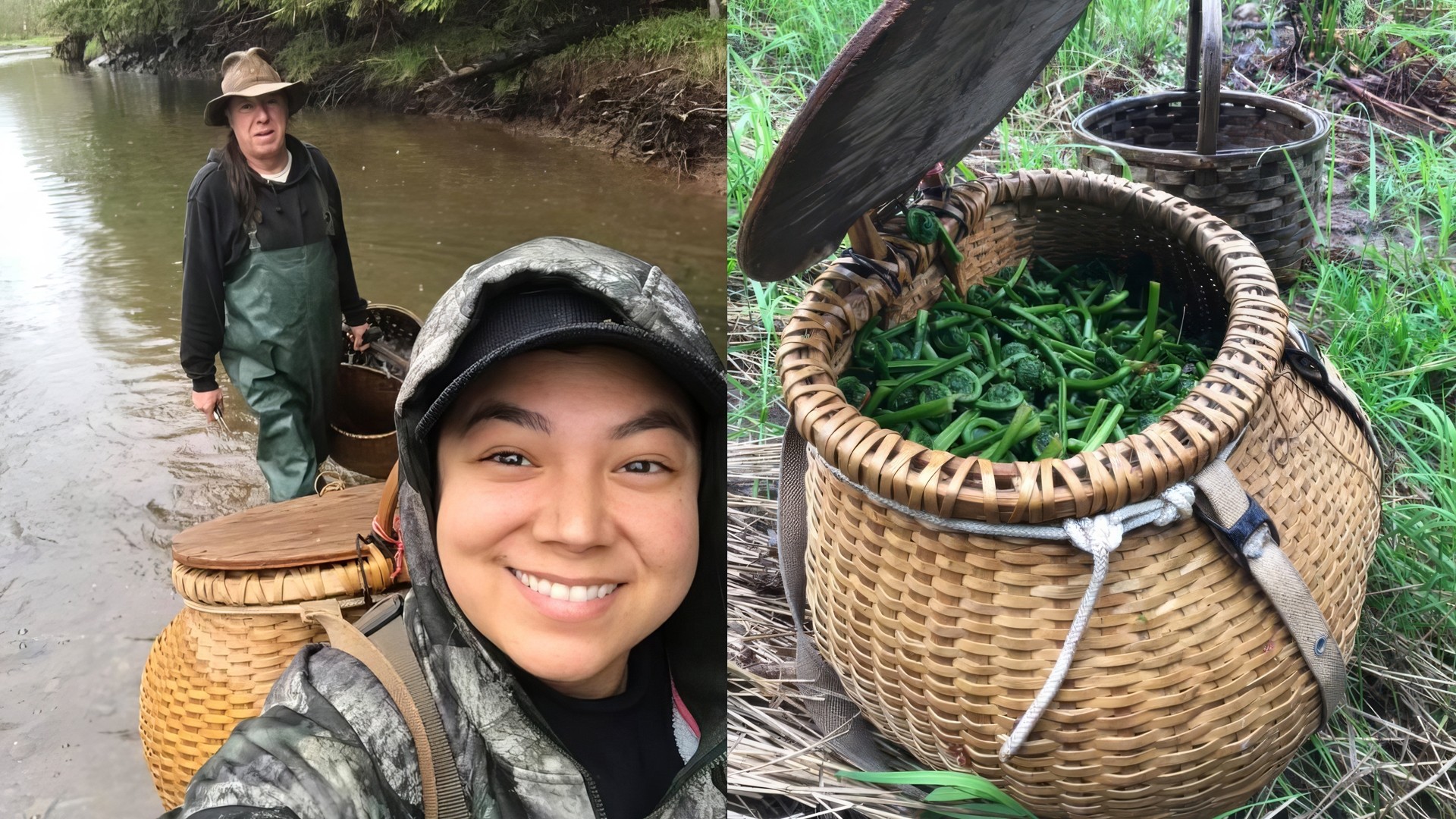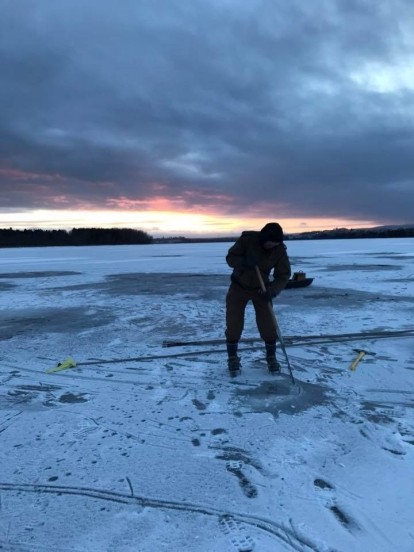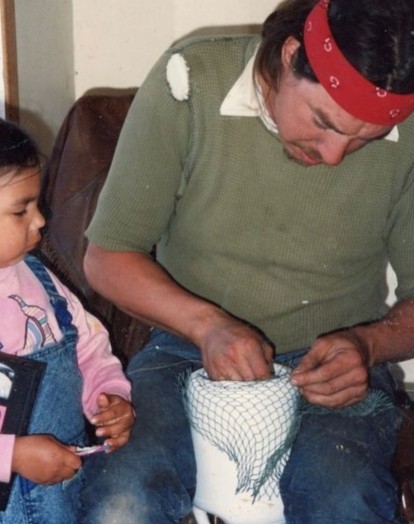
Editor’s Note: As we celebrate Mi’kmaw History Month in October, we’re proud to spotlight some of our own people, Indigenous culture, contributions and history.
Living the ways of netukulimk: StFX father-and-daughter on food and its significance in Mi’kmaw culture
The theme of this year’s Mi’kmaw History Month, Mijipjewey Na Mawa’luksi’k, or Food Gathers us Together, is an apt one for father-and-daughter Kerry and April Prosper of Paqtnkek Mi’kmaw Nation. Through the generations, they’ve connected through food and tradition and its significance in Mi’kmaw culture.
Kerry Prosper is StFX Elder on Campus. April Prosper is a First Nations support worker at a provincial school in Monastery, NS and a StFX Bachelor of Arts student.
For years, the two have foraged for fiddleheads, fished, and hunted together. They have participated in ceremony and rituals. “All the Indigenous ways, we share a lot of that together,” says Mr. Prosper, who grew up picking berries, fishing eels and smelt and trout, and hunting for food, that his mother would often cook, or they’d share with community members.
Though his father died when he was only 10, he learned from his older brothers, from community members, and taught himself.
“If you’ve lived generations and generations on the same land, that food is part of you. It’s the only thing that is good for you. It really heals us, helps us, and keeps us well.”
Though life gets busy, Mr. Prosper prioritizes passing on his knowledge. So many traditions have been lost and not passed on, he wants to ensure that these traditions continue.
Seeing his daughter catching eels or foraging for fiddleheads (a fern in the flood plains) and keeping tradition alive feels good. “I’m not wasting my information.”
Mr. Prosper says for him part of the appeal of participating in these traditions is the enjoyment of being outside, that feeling of independence of getting your own food, and of eating what your ancestors did. “We’ve been here so long, the ancestors’ spirit is connected to everything, you become part of it.”
Ms. Prosper says she always wanted to learn. “Because my dad did it, I wanted to be like that. I wanted to learn and to know.”

She also enjoys being outdoors. “It’s a way to destress, to get away from real world troubles and anxieties. It’s quiet and you’re in nature.
“And I always learn something every time we go out.”
POSITIVE CYCLES
Carrying on positive cycles is important to her. She’s keen to break negative cycles.
Equally important to her is the concept of netukulimk, of only taking what you need. Netukulimk, a concept that keeps future generations in mind, is also a way of thinking that we are all connected and the relationships between plants, humans, animals and water are reciprocal. Ms. Prosper says it is important to her to live these values. Eventually she would like to complete an education degree focused on the idea of netukulimk.
Ms. Prosper says it is also important in Indigenous culture to acknowledge that in order for us to live, we must take life, so an offering of tobacco is made to give thanks to the creator and to the life that has been taken, whether it is an animal or a plant. “It is an exchange of respect.”
“A tobacco offering is usually done before we harvest a food resource from the land or waters, and before ceremony feasts, a spirit plate is made and prayed with as an offering to acknowledge and show gratitude for the abundance that we were able to acquire and provide for others.”
EEL SACRED
One food that has always been a delicacy and a prominent, sacred species in Mi’kmaw culture is the eel.

Father and daughter say the broth from eel soup was used both to give to a baby when a mother couldn’t nurse and when a baby was transitioning to solid food. When people got older and started losing their appetite, eel stew helped bring them back into eating, and as one approached the last days of life, and craved a memorable comfort food that brought them back to when they were young, to a favorite dish that mom made, it was eel stew.
“It’s considered sacred. It’s one of the first and the last foods we have,” says Ms. Prosper.
It is also something that is available through all seasons and through hard times, and it can be served several ways.
Since she was a little girl, it’s been a tradition each spring to gather fiddleheads with her father. One can only collect fiddleheads once a year as you must catch them before they grow into ferns. The fiddleheads are blanched and frozen, then later boiled and served throughout the year at Christmas and Thanksgiving, at Sunday suppers and as something to bring to a feast.

While the Mi'kmaq have put a moratorium on their rights-based moose harvest until population numbers are sustainable, Ms. Prosper says in previous years, the community has organized weekend hunts in Cape Breton for youth, a campout weekend designed to help youth learn off the land from Elders and build that connection to nature. An important element of the weekend is teaching youth about netukulimk, taking only what they need.
BRING EVERYONE TOGETHER
Says Mr. Prosper, “Food brings us together, in happy and sad times, at celebrations like Christmas and Easter, or when someone passed. Everyone comes together.”
Food is a big part of powwows and ceremony, and the community is known for its food.
“Food is a way to bring everyone together, for ceremonies and other purposes. It’s a way to connect and talk and gather, and how we connect with one another,” says Ms. Prosper, who notes that gatherings always include an offering, a giving of thanks to the animals and plants, and recognizing the relationships with food, that give and take.

